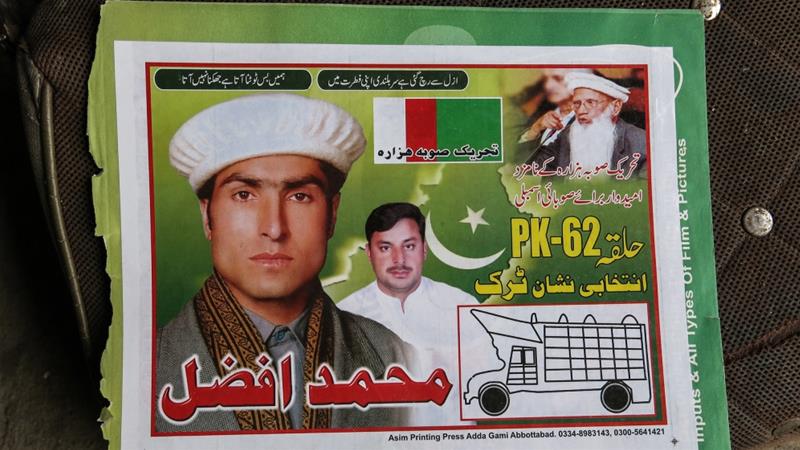How a Pakistani whistle-blower was killed for 'honour'

Afzal Kohistani had lost hope of ever getting the security he needed. The last time he approached the police in the northern Pakistani city of Abbottabad for protection, they dragged him inside the police station and beat him for hours.
Weeks later, the 30-year-old was back in Abbottabad for another hearing in a case that he had single-handedly kept alive for seven years, after the murders of at least three women and three of Afzal's brothers over a matter of "honour". Soon, he would be the latest victim, a manifestation of the high, and incessant, cost of attempting to extract justice in cases involving so-called honour crimes in Pakistan, which have claimed at least 4,900 lives since 2012, according to data from the Human Rights Commission of Pakistan (HRCP). Afzal hails from the Palas valley,
in the remote northern Pakistani region of Kohistan, about 350km by road from the capital Islamabad. Strictly conservative cultural traditions are enforced in the region through tribal councils known as "jirgas". In 2012, two of Afzal's brothers appeared in a video alongside four women, singing and dancing in a small room during a wedding. The women - Begum Jan, Shireen Jan, Bazigha and Amna - sat in a line, clapping in time to the music as Bin Yasir filmed them, and Gul Nazar danced by himself in a corner. When the video leaked into public knowledge, a jirga was ordered.
The boys and girls were from different tribes and, as such, their meeting was forbidden under local custom. Javed Azadkhel, a local Muslim leader from the girl's Azadkhel tribe headed the meeting, and declared that both the men and women must be killed. (The leader refused to be interviewed for this story, but denied any wrongdoing in comments by telephone.) Afzal, fearing for his brothers' lives, made his way to Islamabad, holding a press conference outside the Supreme Court in May 2012, demanding the men and women's lives be protected. A week later, he reported the women had been killed. His two brothers, meanwhile, had fled into hiding. Since then, Afzal had pursued the case at every level - with the police, government bodies and through the courts, attempting to have the perpetrators arrested and his family given protection. In 2013, three of his elder brothers - not the ones in the video - were shot dead when gunmen from the girls' tribe ambushed them outside a mosque. He had come to Abbottabad - about 145km from the remote village where his family has lived in hiding for seven years - for yet another hearing, as the case continued to wind through Pakistan's labyrinthine court system.
In the course of the court proceedings, the Azadkhel admitted in November that three of the women were killed, but claimed it was done by a family member, Shamsuddin, who himself was killed in 2018.
